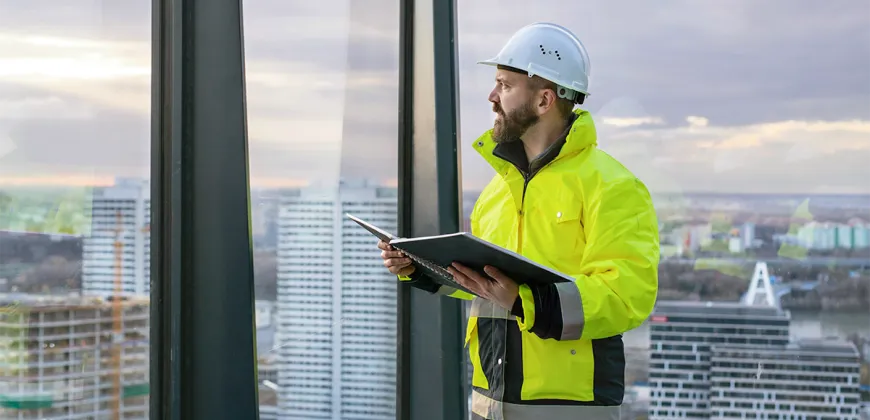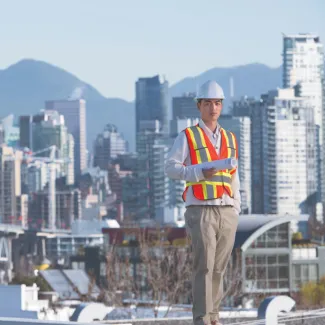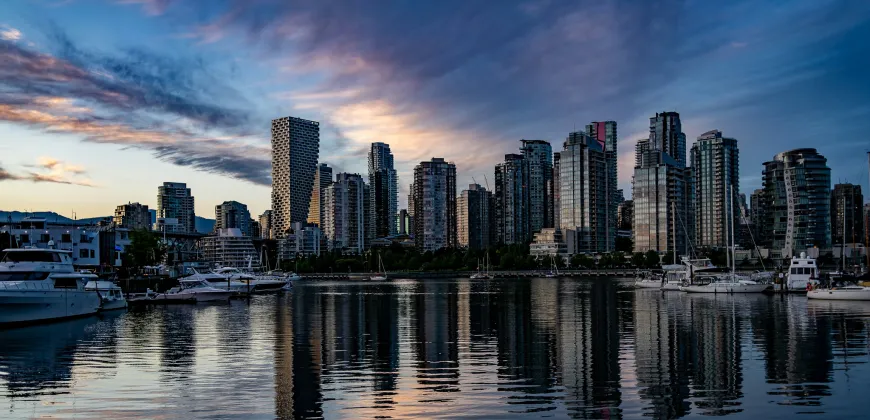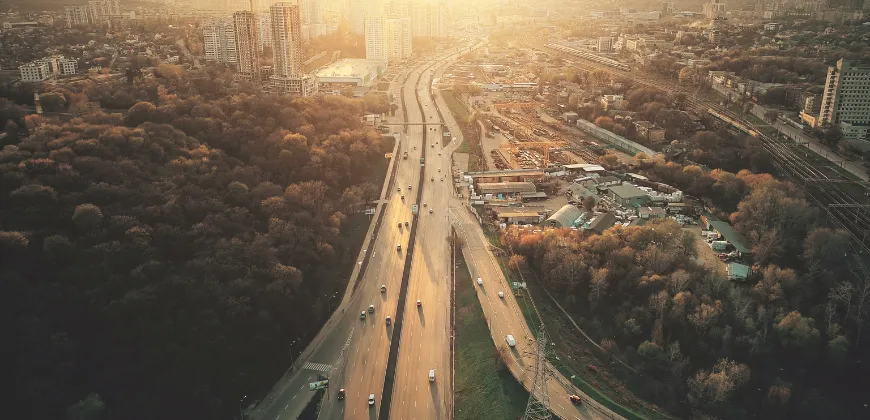Addressing climate change in city planning

Climate change is having – and will continue to have – a disproportionate impact on our cities. Urban centres are major contributors to climate change, and they also acutely experience its effects. Coastal cities are affected by rising sea levels, and all cities are facing ever-more extreme fluctuations of temperature and more frequent and severe storms.
City planners play a key role in developing and implementing climate change mitigation and adaption strategies.
Their work can help cities reduce greenhouse gas emissions and create the more resilient infrastructure and systems needed to reduce vulnerability to climate-related risks.
Urban innovation strategies to help cities adapt
Cities require incredible amounts of energy for moving people and goods, heating and cooling buildings, and powering electricity grids and essential services. Urban planners are increasingly called upon to develop and implement strategies to reduce those emissions and increase the ability of cities to adapt to a changing climate. Some areas of focus include:
- Public transportation: Efficient and affordable public transportation systems encourage a shift away from private vehicles or ride shares.
- The 15-minute city: Planning and densification strategies can reduce the need for long commutes for work or school, making all essential services available within a 15-minute walk or cycle.
- Green building standards: Jurisdictions can use policy approaches, including green building standards, to mandate compliance with more sustainable approaches to urban planning.
- Focus on parks and green space: Green spaces promote social cohesion and provide essential “third spaces” outside of the home, and they can also address some of inequities that often exist between wealthier neighbourhoods and those with fewer resources. In addition to providing much-needed shade and helping regulate temperature, trees play an important role in minimizing soil erosion, reducing air pollution and slowing the movement of storm water.
- Water management: Water scarcity is a growing concern worldwide, including in geographical areas that historically did not need to worry about water availability. Urban planners are seeking ways to manage water more effectively through investments in large-scale infrastructure, new approaches to managing storm runoff, and seeking ways to capture and collect rain water..
- Climate-resilient infrastructure: Roads and bridges, wastewater treatment plants and district energy systems can all contribute to cities that are more resilient to climate risks.
Urban planners have many tools at their disposal to explore these and other strategies. These can include infrastructure asset management, vulnerability assessments and community engagement processes that capture as many voices as possible.
“For those of us working in urban planning and infrastructure, finding innovative ways to address the challenges of climate change and inequality is a top priority,” says Martino Tran, Co-Director of the Master of Engineering Leadership in Urban Systems.
“That’s why it is so crucial to take a human-centred approach to infrastructure planning and investment. This means broadening our understanding of infrastructure beyond physical assets such as transportation networks, the electricity grid and water distribution. "We also need to look at the technological and social networks – at the places and spaces in a city that impact our quality of life as well as the services like schools, hospitals and community centres that allow for community interaction and play a crucial role in improving quality of life.
City planners needed to lead transformational work
A new kind of urban planning professional is needed to reduce cities’ vulnerability to climate risks and improve social equity. Top employers from the private and public sector are looking for people well versed in urban planning and innovations in urban infrastructure. They need people with technical expertise who understand how the different systems within a city depend on each other.
What’s also needed are city planners who are visionary leaders, strong communicators and innovative problem-solvers.
This has opened up exciting opportunities for professionals who combine urban planning expertise with powerful people skills. These individuals have the communication and negotiation skills to help different levels of government, stakeholders, communities and industry find common ground and chart sustainable paths forward. Similarly, there’s a pressing need for people who understand policy and its role in shifting practices to align with emission reduction and climate change mitigation goals.
A master’s degree in urban planning
The comprehensive curriculum for the UBC MEL in Urban Systems was designed for early- and mid-career city planning professionals who want to gain the wide-ranging knowledge needed to work at the forefront of climate change mitigation and adaption. The curriculum covers a range of city planning topics, grounded in practical examples and industry-led projects. Case studies are also a crucial part of the curriculum, helping students explore best practices and challenges from around the world.
“[Students] might explore the environmental impacts of large dam projects or tensions between the goals of renewable energy and biodiversity,” says Jordi Honey-Rosés.
Dr. Rosés, the former Associate Professor in the School of Community and Regional Planning, taught a course on Urban Systems and Society. “We also talk about the issues of regulation and pricing of water and energy services.” Program instructors and directors are well-connected in the field. Program Co-Director Amy Kim, for example, develops decision-making tools so that government leaders “can better plan large-scale transportation systems in the face of challenges such as climate change.”
"Knowing that we face increasing frequencies and severities of natural disasters, like the flooding that deluged BC’s Lower Mainland in November 2021, we need to ensure we are able to effectively adapt our infrastructure decision-making to a changing and unpredictable environment,” Dr. Kim says.
Students benefit from the program’s close connection to industry partners. In one project, students develop ideas to support environmental, social and economic goals at a 564-acre community development project in Edmonton, Alberta. In some years, students have flown to Edmonton to meet with city planners and development leaders to review the project and then develop recommendations for consideration.
City planners in high demand
Urban planners are in high demand as cities around the world grapple with ways to mitigate current and future impacts of climate change. With urban populations experiencing significant growth due to increased urbanization and high levels of immigration, city leaders are turning to urban planners to meet the housing, transportation and essential services needs of a growing population – while keeping sustainability goals top of mind.
“Our industry partners tell us time and again that they need employees whose technical expertise is matched by their ability to communicate effectively and lead across different domains,” says Dr. Tran.
“I believe the MEL in Urban Systems provides a valuable training ground for the leaders of tomorrow who can develop and implement the people-centred infrastructure projects that could transform our cities into more sustainable and equitable places.”
Specialized professionals in city planning
Professional master’s degrees like UBC’s Master of Engineering Leadership in Urban Systems provide forward-thinking individuals with the skills needed to move into leadership positions in the public and private sector. This is thanks to:
- An interdisciplinary curriculum that combines technical and business knowledge
- Industry-linked projects where you will partner with industry or municipal government partner to develop a solution to a real-world problem
- Industry networking opportunities throughout the year
- Learning alongside other professionals like yourself, from all over the world, who bring impressive experience to their studies
- The potential to participate in UBC programs like Sustainability Scholars and Creative Destruction Lab
Alumni of the MEL in Urban Systems are well prepared to advance in their careers, integrating new innovations in urban planning to help our cities be more resilient to climate-related risks.






